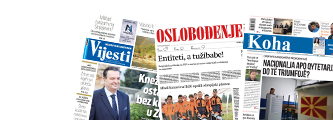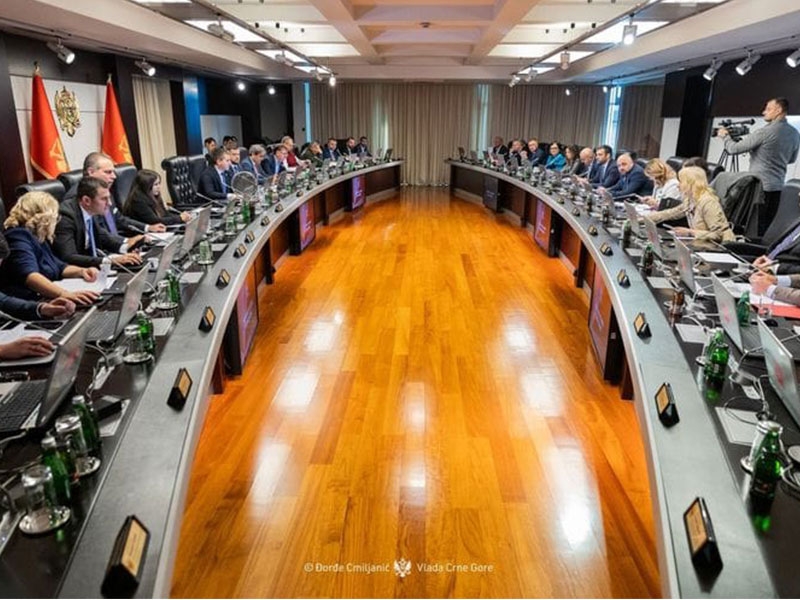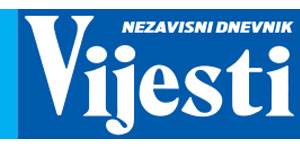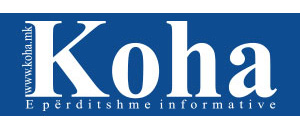For several years, the media in Montenegro have been faced with serious challenges, which are reflected in political and economic influence and dependence, thereby directly threatening the
sustainability of the current level of media pluralism and future development thereof. Media able to operate in a free market, without the direct influence of the government, with the full compliance with the law and regulations which prevent political pressures and influence over the media and reporting is not only the minimum prerequisite for the functioning and operations of all media in Montenegro but also expectations in regard to progress towards the EU membership.
The viability of the media businesses without direct pressures and influences on reporting coming from different influential groups within the society is at risk. The process of finding an adequate business model that would enable business sustainability, preserve media independence, and ensure unbiased reporting is a challenge present in many developed democracies. The need to protect traditional media is of special importance in the light of the challenges arising in the era of digital development including increasingly popular internet media and social media that act as intermediaries in information transmission, which do not create the information but distribute different and often untrustworthy sources and information. The fact that the broad audience is reached by the new forms of media – both internet portals and information intermediaries (i.e. social media) represents a great potential for advertising to the targeted audience, which increasingly directs marketing budget towards these new forms of media, consequently threatening the viability of traditional media. The lack of regulations in this area deepens the problem and poses a threat to the functioning of traditional medial, which is why the government ought to strategically design measures and directly help to preserve and developing media pluralism.
However, unlike Montenegro, other countries have identified these challenges and committedly work on developing models and strategies to prevent potential challenges regarding traditional
media occurring in the future, and to ensure media pluralism, using positive actions of the government through direct or indirect subsidies, while keeping a neutral and balanced approach
to different media.
This report aims to contribute in this direction. The report systematically inspects the media market in Montenegro and their individual positions in the economic environment. It demonstrates concerns regarding the largest economic challenges faced by the media and provides suggestions for overcoming them.
The fact that television in Montenegro is still the primary and dominant source of information for 63% of the population, and that citizens have the highest degree in this media type, indicates
that it is not too late to strategically approach the issue of sustainability of traditional media and strengthening media pluralism. On the other hand, as a primary source of information 16% of citizens of Montenegro chose the Internet (not including social networks), 12% marked social networks, 3% chose print media, 2% chose radio stations, while the rest of the respondents either
declined to respond or do not use media as a source of information.
While 25% of respondents marked RTCG as the most reliable and trusted media outlet, when it comes to political information i.e. their news program, Vijesti took first place with 33% of those
who marked this television as the most reliable. On the other hand, the collected data indicates that findings do not correspond with the business success and performance of the media. For instance, findings suggest that in terms of generated revenue print media are performing significantly better than electronic media, which does not make economic sense but confirms the thesis that the part of the marketing share is being lost in regional countries.
The present unfair competition raises concerns it could additionally threaten the sustainability of the fragile media market in Montenegro. According to the collected data, it is necessary to
undertake activities aimed at protecting domestic traditional media thereby providing them with the opportunity to survive within the market in Montenegro.
The attempts of the Government of Montenegro to support the media industry and encourage pluralism through Fund for the stimulation of media pluralism are meaningless when considering that the planned annual budget of around 1 million euros is to be used for support of all traditional media which means that more than fifty media outlets (TV and radio) will share the support of 500,000 euros per annum, while the print media – four daily newspapers, one weekly newspaper, and over 70 electronic publications, will be sharing the support of 300,000 euros.
Download document HERE.











